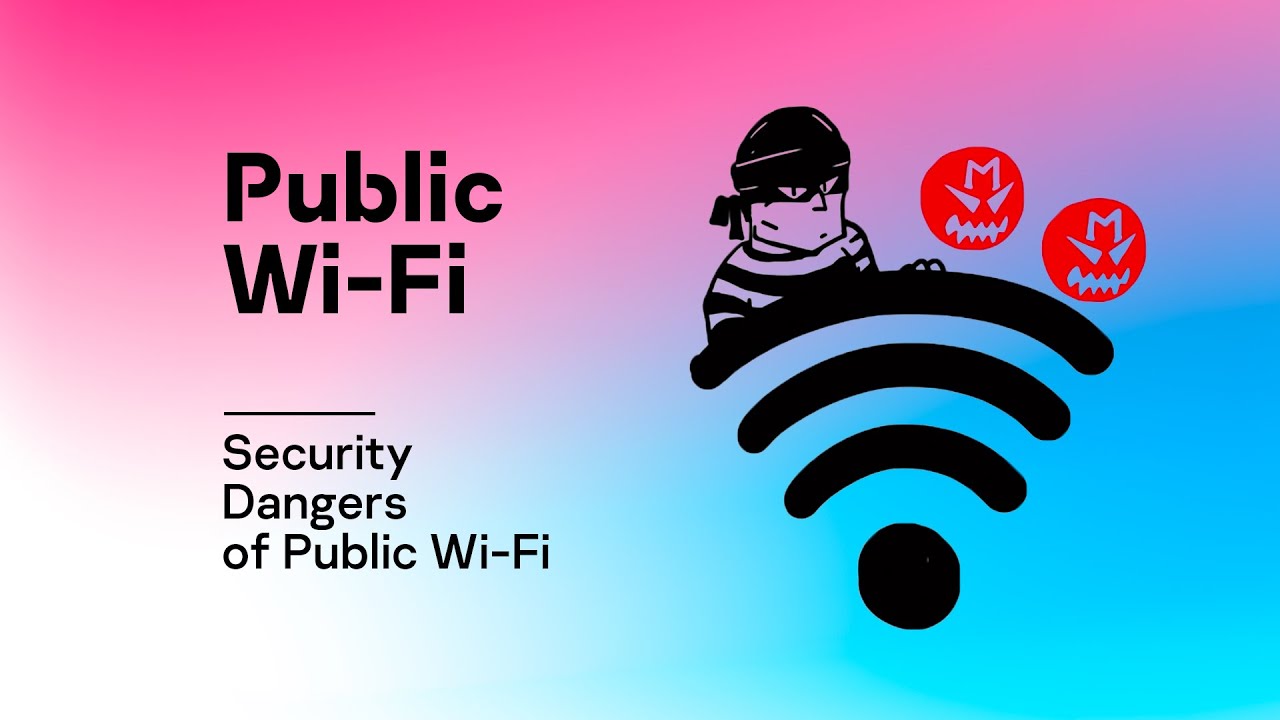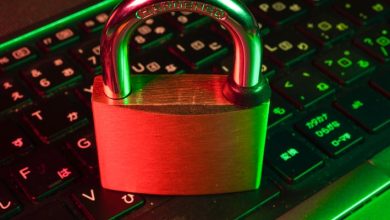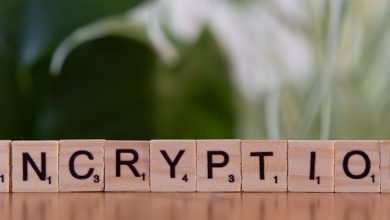Risks of Using Public Wi-Fi for Crypto Transactions

- Understanding the security risks of using public Wi-Fi for crypto transactions
- Tips for protecting your cryptocurrency assets when using public Wi-Fi networks
- Why public Wi-Fi networks are a breeding ground for hackers targeting crypto users
- The dangers of connecting to unsecured Wi-Fi hotspots for conducting cryptocurrency transactions
- How to minimize the risks of using public Wi-Fi for crypto transactions
- The importance of using VPNs and other security measures when accessing your crypto wallet on public networks
Understanding the security risks of using public Wi-Fi for crypto transactions
When it comes to conducting crypto transactions, using public Wi-Fi can pose significant security risks. Public Wi-Fi networks are often unsecured, making it easier for hackers to intercept sensitive information such as passwords, private keys, and transaction details. This leaves your crypto assets vulnerable to theft and unauthorized access.
One of the main risks of using public Wi-Fi for crypto transactions is the potential for a man-in-the-middle attack. In this type of attack, a hacker intercepts communication between two parties, allowing them to eavesdrop on the transaction and even alter the details without either party knowing. This can result in funds being sent to the wrong address or stolen altogether.
Additionally, public Wi-Fi networks are often targeted by cybercriminals looking to exploit vulnerabilities in the network to gain access to users’ devices. Once they have access to your device, hackers can install malware or keyloggers to capture sensitive information, including your crypto wallet credentials.
To mitigate the risks of using public Wi-Fi for crypto transactions, it is recommended to avoid conducting transactions on public networks altogether. Instead, use a secure and private internet connection, such as a virtual private network (VPN) or mobile data. By taking these precautions, you can help protect your crypto assets from falling into the wrong hands.
Tips for protecting your cryptocurrency assets when using public Wi-Fi networks
When using public Wi-Fi networks, it is crucial to take precautions to protect your cryptocurrency assets from potential security threats. Here are some tips to help you safeguard your funds:
- **Avoid** accessing your crypto wallets or making transactions while connected to public Wi-Fi networks, as they are **vulnerable** to **cyber attacks**.
- Consider using a **virtual private network (VPN)** to encrypt your internet connection and **enhance** your **online security**.
- Enable **two-factor authentication** on your crypto accounts to add an extra layer of protection against unauthorized access.
- Regularly update your **wallet software** and **operating system** to **patch** any **security vulnerabilities** that could be **exploited** by **hackers**.
- Avoid accessing sensitive information, such as **private keys** or **seed phrases**, while connected to public Wi-Fi networks to prevent **potential** **data breaches**.
By following these **precautionary measures**, you can **minimize** the **risks** associated with using public Wi-Fi networks for **crypto transactions** and **protect** your **digital assets** from **security threats**.
Why public Wi-Fi networks are a breeding ground for hackers targeting crypto users
Public Wi-Fi networks are often seen as convenient for users on the go, but they can pose significant risks, especially for crypto users. These networks are a breeding ground for hackers looking to exploit vulnerabilities and intercept sensitive information. When you connect to a public Wi-Fi network, you are essentially sharing the same network with strangers, making it easier for malicious actors to eavesdrop on your online activities.
For crypto users, this means that transactions conducted over public Wi-Fi networks are at a higher risk of being compromised. Hackers can use various techniques to intercept data, such as man-in-the-middle attacks or packet sniffing, allowing them to steal your crypto wallet information or private keys. Once they have access to this information, hackers can easily drain your account without you even realizing it.
It is crucial for crypto users to be aware of the risks associated with using public Wi-Fi networks and take steps to protect themselves. One of the most effective ways to safeguard your crypto transactions is to avoid conducting them over public Wi-Fi altogether. Instead, consider using a virtual private network (VPN) to encrypt your internet connection and add an extra layer of security.
Additionally, make sure to enable two-factor authentication on your crypto accounts and use strong, unique passwords to minimize the risk of unauthorized access. By being proactive and taking these precautions, you can help protect your crypto assets from falling into the hands of hackers on public Wi-Fi networks.
The dangers of connecting to unsecured Wi-Fi hotspots for conducting cryptocurrency transactions
Connecting to unsecured Wi-Fi hotspots to conduct cryptocurrency transactions can expose you to various risks and vulnerabilities. When you use public Wi-Fi networks, hackers can easily intercept your data and gain access to your sensitive information, including your cryptocurrency wallet credentials. This can lead to unauthorized access to your funds and potential financial losses.
Furthermore, unsecured Wi-Fi hotspots are often targeted by cybercriminals who set up fake networks to trick users into connecting to them. Once connected, these malicious actors can deploy various techniques to steal your cryptocurrency assets, such as man-in-the-middle attacks or malware injections. It is crucial to be cautious when using public Wi-Fi for any online transactions, especially those involving cryptocurrencies.
To mitigate the risks associated with using unsecured Wi-Fi hotspots for cryptocurrency transactions, consider using a virtual private network (VPN) to encrypt your internet connection and protect your data from prying eyes. Additionally, make sure to enable two-factor authentication on your cryptocurrency accounts to add an extra layer of security. By taking these precautions, you can reduce the likelihood of falling victim to cyber attacks while conducting crypto transactions on public Wi-Fi networks.
How to minimize the risks of using public Wi-Fi for crypto transactions
When using public Wi-Fi for crypto transactions, it is crucial to take steps to minimize the associated risks. Here are some tips to help you stay safe:
- Avoid accessing your crypto wallet or making transactions on public Wi-Fi networks whenever possible.
- If you must use public Wi-Fi, consider using a virtual private network (VPN) to encrypt your connection and add an extra layer of security.
- Make sure your devices have up-to-date security software installed to protect against malware and other cyber threats.
- Double-check the URL of the website you are visiting to ensure you are on the correct site and not a phishing page.
- Avoid entering sensitive information, such as your private keys or passwords, on public Wi-Fi networks.
By following these precautions, you can help minimize the risks associated with using public Wi-Fi for crypto transactions and protect your digital assets from potential threats.
The importance of using VPNs and other security measures when accessing your crypto wallet on public networks
When accessing your crypto wallet on public networks, it is crucial to use VPNs and other security measures to protect your assets from potential threats. Public Wi-Fi networks are often unsecured, making it easier for hackers to intercept your data and gain access to your crypto holdings. By using a VPN, you can encrypt your connection and add an extra layer of security to prevent unauthorized access.
Additionally, it is essential to enable two-factor authentication (2FA) on your crypto wallet to further enhance security. 2FA requires a second form of verification, such as a code sent to your phone, to access your account, making it more difficult for hackers to breach your defenses. By combining VPNs, 2FA, and other security measures, you can significantly reduce the risk of unauthorized access to your crypto assets.



